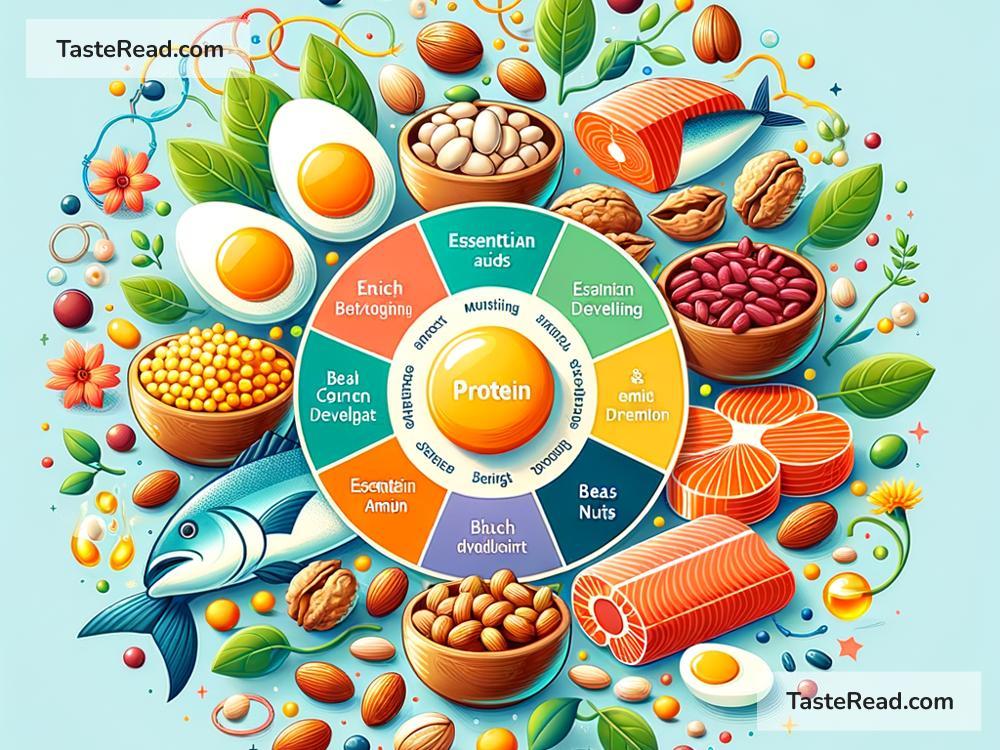Understanding the Role of Essential Amino Acids: Why They’re Important for Your Body
When it comes to staying healthy, our bodies require a variety of nutrients. One of the most important groups of nutrients are amino acids. These are tiny building blocks that help form protein, which plays a key role in almost everything our bodies do—from repairing tissues to producing energy and supporting immunity. But not all amino acids are the same. In this blog, we’ll explore essential amino acids, why they’re important, and how to make sure you’re getting enough of them in your diet.
What Are Amino Acids?
Think of amino acids as puzzle pieces. When they come together, they form bigger structures called proteins. These proteins are vital for functions such as building muscles, transporting nutrients, and even creating hormones and enzymes.
There are 20 amino acids that make up proteins, and they fall into two categories:
- Essential Amino Acids (EAAs): These are amino acids your body cannot produce on its own. This means you must get them through the foods you eat.
- Non-Essential Amino Acids: Your body can produce these on its own, so you don’t need to depend on food to get them.
In this article, we’ll focus on the essential amino acids—because they’re the ones you need to consciously include in your diet.
The 9 Essential Amino Acids
There are nine essential amino acids that your body depends on:
- Histidine – Important for growth, repair, and producing red and white blood cells.
- Isoleucine – Helps with energy production and muscle repair.
- Leucine – Supports muscle growth and recovery, and helps regulate blood sugar levels.
- Lysine – Key for building proteins in the body, supporting immune function, and producing hormones.
- Methionine – Helps with metabolism and detoxification.
- Phenylalanine – Important for producing brain chemicals like dopamine that affect mood and focus.
- Threonine – Supports skin health and plays a role in the formation of collagen.
- Tryptophan – Known for helping with sleep and mood regulation, as it’s linked to producing serotonin.
- Valine – Needed for muscle repair and energy delivery.
Each of these amino acids has its own unique role, but as a group, they work together to keep your body strong and functioning properly.
Why Are Essential Amino Acids Important?
Essential amino acids are crucial because your body uses them for essential functions like:
- Muscle Protein Synthesis: When you work out, your muscles need amino acids to repair and grow. Essential amino acids like leucine are especially important for muscle recovery.
- Boosting Immune Function: Amino acids support your immune system by helping build the proteins needed to fight off infections.
- Producing Hormones and Enzymes: Your body uses essential amino acids to make hormones that regulate your mood, energy, and metabolism. They also help create enzymes that aid in digestion and other chemical processes.
- Improving Skin, Hair, and Nails: Essential amino acids support the production of collagen and keratin, which are proteins that keep your skin elastic, your hair strong, and your nails healthy.
- Energy Production: Some essential amino acids can be used as a source of energy when your body needs it.
Without enough essential amino acids, your body can struggle with these functions, which can lead to fatigue, muscle loss, a weaker immune system, or other health problems.
Where Do Essential Amino Acids Come From?
Since your body cannot make essential amino acids, you need to get them from protein-rich foods. These foods are divided into complete proteins and incomplete proteins:
- Complete Proteins: These contain all nine essential amino acids. Examples include meat, fish, eggs, dairy products, quinoa, and soy.
- Incomplete Proteins: These lack one or more essential amino acids. Most plant-based foods, like beans, nuts, and grains, fall into this category.
If you follow a vegetarian or vegan diet, you can still get all the essential amino acids by combining incomplete proteins. For example, eating rice and beans together gives you all nine essential amino acids.
How Much Do You Need?
The amount of essential amino acids you need depends on factors like your age, activity level, and health. In general, adults should aim to eat enough protein to provide all the essential amino acids their bodies need. The Recommended Dietary Allowance (RDA) suggests the average adult should consume about 0.8 grams of protein per kilogram of body weight per day. For someone who weighs 150 pounds, this equals about 55 grams of protein daily.
If you’re active, pregnant, recovering from illness, or trying to build muscle, your protein needs may be higher.
What Happens If You Don’t Get Enough?
If your diet doesn’t include enough essential amino acids, your body struggles to perform key functions. Some potential signs of an amino acid deficiency include:
- Weak or deteriorating muscles
- Fatigue or lack of energy
- Slow healing from injuries
- Weak immunity or frequent sickness
- Dry skin or brittle hair and nails
Fortunately, eating a balanced diet rich in diverse protein sources can help prevent these problems.
Final Thoughts
Essential amino acids are small but mighty—they’re the foundation of good health, playing a crucial role in growth, repair, and daily bodily functions. Whether you’re eating steak or lentils, the goal is to ensure you’re getting enough complete proteins or balancing your plant-based foods to pack in all nine essential amino acids.
By making smart and nutritious food choices, you’re giving your body the tools it needs to thrive. So the next time you see protein on your plate, remember: you’re not just eating for taste—you’re feeding your body the building blocks of life!


